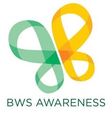What is Beckwith- Wiedemann Syndrome?
Beckwith Wiedemann Syndrome is a congenital overgrowth disorder usually present at birth. BWS is characterized by large body size, enlarged organs, macroglossia (enlarged tongue), midline abdominal wall defects (omphalocele/exomphalos, umblicial hernia, diastasis recti), neonatal hypoglycemia and greatly increased risk of childhood cancer, particularly liver and kidney tumors.
What causes Beckwith-Wiedemann Syndrome and who is affected?
The causes of BWS are not always fully understood, although genetic testing has shown many patients to have changes in the genes of chromosome 11. Beckwith-Wiedemann Syndrome has an estimated occurrence of one in 14,000. BWS has been documented in many different ethnic groups from around the world and occurs equally in males and females. Some cases of BWS are inherited, but most are sporadic.
What markers might be present?
Many babies with BWS are born with “stork bites”- crimson birth marks on the forehead and, or back of neck. They often have low blood sugar at birth and may present with a large tongue. Some babies have ear creases or pits and many have abdominal wall defects. Not all babies present in the same manner, but these are common markers and all markers may be present or just one or two.
Why is early diagnosis imperative?
Low blood sugars left untreated can have serious consequences developmentally If a baby is thought to have BWS it is mandatory to begin the recommended screening protocol, which is generally to have blood draws every 6 weeks and abdominal ultrasounds every 3 months to provide early detection for cancer or changes in the condition.
Why is early diagnosis imperative?
Low blood sugars left untreated can have serious consequences developmentally If a baby is thought to have BWS it is mandatory to begin the recommended screening protocol, which is generally to have blood draws every 6 weeks and abdominal ultrasounds every 3 months to provide early detection for cancer or changes in the condition.
Myths
-Your baby will “grow into” his tongue:
Not all babies require tongue reduction surgery but measurements should be taken. Enlarged tongue may cause difficulties breathing, choking, and feeding challenges. If a child does not have tongue reduction, the jaw line and face shape often change to accommodate the enlarged tongue, resulting in serious orthodontic concerns later in childhood.
-Children with “Mild BWS” are not prone to developing childhood cancers:
Statistically children develop cancer equally whether they present as mild or serious.
-BWS children have learning disabilities:
For the most part, children have no adverse cognitive issues.
What is the future for individuals with Beckwith-Wiedemann Syndrome?
Most children with BWS can grow forward and have fully functioning lives, providing early cancers are detected soon enough. Children first diagnosed with BWS in the sixties have become fully productive adults with the same chances as the general population. In fact, we even have a member of the group who had a very successful career in the NFL who was one of the first babies diagnosed with BWS.
Not all babies require tongue reduction surgery but measurements should be taken. Enlarged tongue may cause difficulties breathing, choking, and feeding challenges. If a child does not have tongue reduction, the jaw line and face shape often change to accommodate the enlarged tongue, resulting in serious orthodontic concerns later in childhood.
-Children with “Mild BWS” are not prone to developing childhood cancers:
Statistically children develop cancer equally whether they present as mild or serious.
-BWS children have learning disabilities:
For the most part, children have no adverse cognitive issues.
What is the future for individuals with Beckwith-Wiedemann Syndrome?
Most children with BWS can grow forward and have fully functioning lives, providing early cancers are detected soon enough. Children first diagnosed with BWS in the sixties have become fully productive adults with the same chances as the general population. In fact, we even have a member of the group who had a very successful career in the NFL who was one of the first babies diagnosed with BWS.
Why is it so important to spread awareness about Beckwith-Wiedemann Syndrome?
Children with BWS are 600 times more likely to develop certain childhood cancers. The most common types of cancer are Wilms tumor (nephroblastoma), pancreatoblastoma and hepatoblastoma. In addition, children with BWS are also at a greatly increased risk of developing adrenal cortical carcinoma, neuroblastoma and rhabdomyosarcoma. Yes, 600 times more likely, you read that right! It is so important for children with BWS to have regular blood tests and ultrasounds to screen for cancerous tumors that may be developing. It is absolutely crucial that children with BWS have 6 weekly alpha-fetoprotein (AFP) blood tests and abdominal ultrasounds every 3 months until at least eight years of age. Many children with BWS are currently not having the proper screening, due to doctors and medical staff having little knowledge of the syndrome. There are many children who have obvious features of BWS, but with very little research and knowledge, the professionals are simply unaware of the syndrome and therefore unaware of the risks associated with BWS and cancer.


